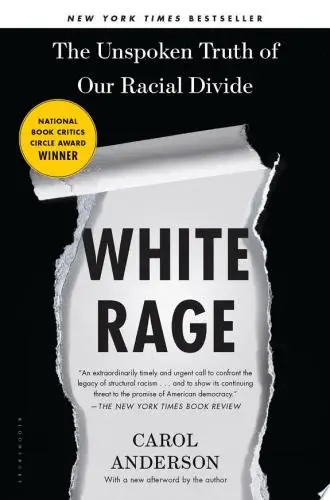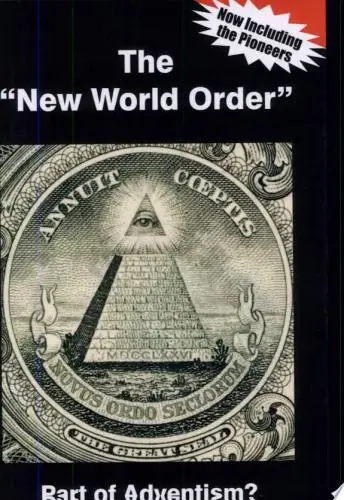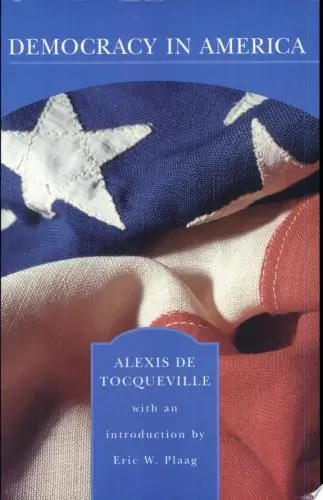
The Papers of Martin Luther King, Jr., Volume I
Called to Serve, January 1929-June 1951
What's it about?
The Papers of Martin Luther King, Jr., Volume I offers you an in-depth look at the formative years of a pivotal leader in the civil rights movement. Through documents, letters, and speeches, you'll discover King's evolving thoughts on nonviolence, justice, and equality. This volume reveals his early influences and the challenges he faced, enriching your understanding of his philosophy and strategies. Engaging with this collection allows you to appreciate the foundations of civil rights advocacy and the profound impact of King's legacy on social justice today.
About the Author
Martin Luther King Jr. was a pivotal civil rights leader advocating for racial equality through nonviolent resistance. His persuasive speeches, including the iconic "I Have a Dream," emphasized justice, freedom, and brotherhood. Known for his eloquence and moral courage, King's work significantly advanced the American civil rights movement.
5 Key Ideas of The Papers of Martin Luther King, Jr., Volume I
Embrace Nonviolent Resistance
Committing to nonviolence in the face of injustice transforms not only the oppressor but also fortifies oneself.
Imagine the brave bus boycott in Montgomery, where faith and peaceful protest became the driving force that shook the foundations of segregation, showcasing the power of peaceful conviction.
- Nonviolence nurtures the moral high ground, instilling empathy and understanding.
- It dismantles the chain of hatred, cultivating an atmosphere of dialogue.
- Amplifies movements by attracting diverse supporters who favor peace over aggression.
The next time you face a heated disagreement, pause and respond with calmness and understanding, finding common ground to build upon.
Avoid confusing nonviolence with passivity; it requires active and courageous opposition to injustice.
Find Strength in Community
Harnessing the power of collective action fortifies individual efforts and turns mere ripples into powerful tides of change.
Reflect on the unity displayed during the March on Washington, where voices united in harmony brought the dream for justice and equality into sharp focus.
- Unity amplifies individual voices, making advocacy hard to ignore.
- Shared goals foster resilience and persistence even in adversity.
- Diverse perspectives enrich strategies, leading to more comprehensive solutions.
Join a local group or cause that aligns with your values, contributing your unique strengths to a collective effort.
Resist isolation by understanding that each voice matters and collaborating with others enhances impact.
The Power of Unconditional Love
Practicing agape love, or unconditional love, bridges divides and fosters true reconciliation and peace.
Consider the transformative letters from Birmingham Jail, which, through love and understanding, sought to mend the deep-seated rifts of prejudice and hate.
- Love dismantles barriers of hatred, fostering networks of mutual respect.
- It promotes genuine forgiveness, essential for healing past grievances.
- Love invokes a higher moral call, inspiring others to reciprocate with positivity.
Show compassion to someone you disagree with, focusing on understanding their perspective without judgment.
Beware of letting bitterness and resentment interfere; unconditional love is not contingent on reciprocity.
Deeper knowledge. Personal growth. Unlocked.
Unlock this book's key ideas and 15M+ more. Learn with quick, impactful summaries.
Read Full SummarySign up and read for free!
The Papers of Martin Luther King, Jr., Volume I Summary: Common Questions
"I have a dream that one day this nation will rise up and live out the true meaning of its creed." This powerful sentiment from Martin Luther King Jr. encapsulates the essence of his vision for America and highlights the continuous struggle for racial equality and justice. In The Papers of Martin Luther King, Jr., Volume I, I was drawn into the intricate folds of King’s life, his philosophical underpinnings, and his early activism during the Civil Rights Movement.
What struck me the most were the letters and speeches that offered a profound insight into his moral courage and the strategies he employed to mobilize communities. His correspondence reveals a man deeply affected by the injustices around him yet unwavering in his commitment to nonviolence. However, I found myself wrestling with the complexities of his relationships and the pressures he faced from various factions within the movement. It was a reminder that leadership is often laden with sacrifices and tensions, which adds layers to his narrative.
Overall, this volume serves not only as a historical document but as an inspirational guide to those aiming to effect social change. If you enjoyed other impactful texts about the Civil Rights Movement, like The Autobiography of Malcolm X or Just Mercy by Bryan Stevenson, you'll likely find King's papers equally compelling. I highly recommend diving into this volume for anyone interested in understanding the heart of a transformative leader.
Experience Personalized Book Summaries, Today!
Discover a new way to gain knowledge, and save time.
Sign up for our 7-day trial now.
No Credit Card Needed

Similar Books

The White Night of St. Petersburg
Michel (Prince of Greece)
White Rage
Carol Anderson
Band of Brothers
Stephen E. Ambrose
Defining Sexism
Elizabeth Hall Magill
Class Matters
The New York Times
The New World Order
Allen Roesch
Irvine Welsh
Robert Morace
To Kill a Mockingbird
Harper Lee
Introduction to Daisy Jones & The Six
Gilad James, PhD
Democracy in America
Alexis de TocquevilleTrending Summaries

Peak
Anders Ericsson
Never Split the Difference
Chris Voss
Smart Brevity
Jim VandeHei
The Psychology of Money
Morgan Housel
The First 90 Days
Michael D. Watkins
Atomic Habits
James Clear
Thinking, Fast and Slow
Daniel Kahneman
The Body Keeps the Score
Bessel van der Kolk M.D.
The Power of Regret
Daniel H. Pink
The Compound Effect
Darren HardyNew Books

Forex Trading QuickStart Guide
Troy Noonan
Comprehensive Casebook of Cognitive Therapy
Frank M. Dattilio
The White Night of St. Petersburg
Michel (Prince of Greece)
Demystifying Climate Models
Andrew Gettelman
The Hobbit
J.R.R. Tolkien
The Decision Book
Mikael Krogerus
The Decision Book: 50 Models for Strategic Thinking
Mikael Krogerus
Fichte
Johann Gottlieb Fichte
Do No Harm
Henry Marsh
